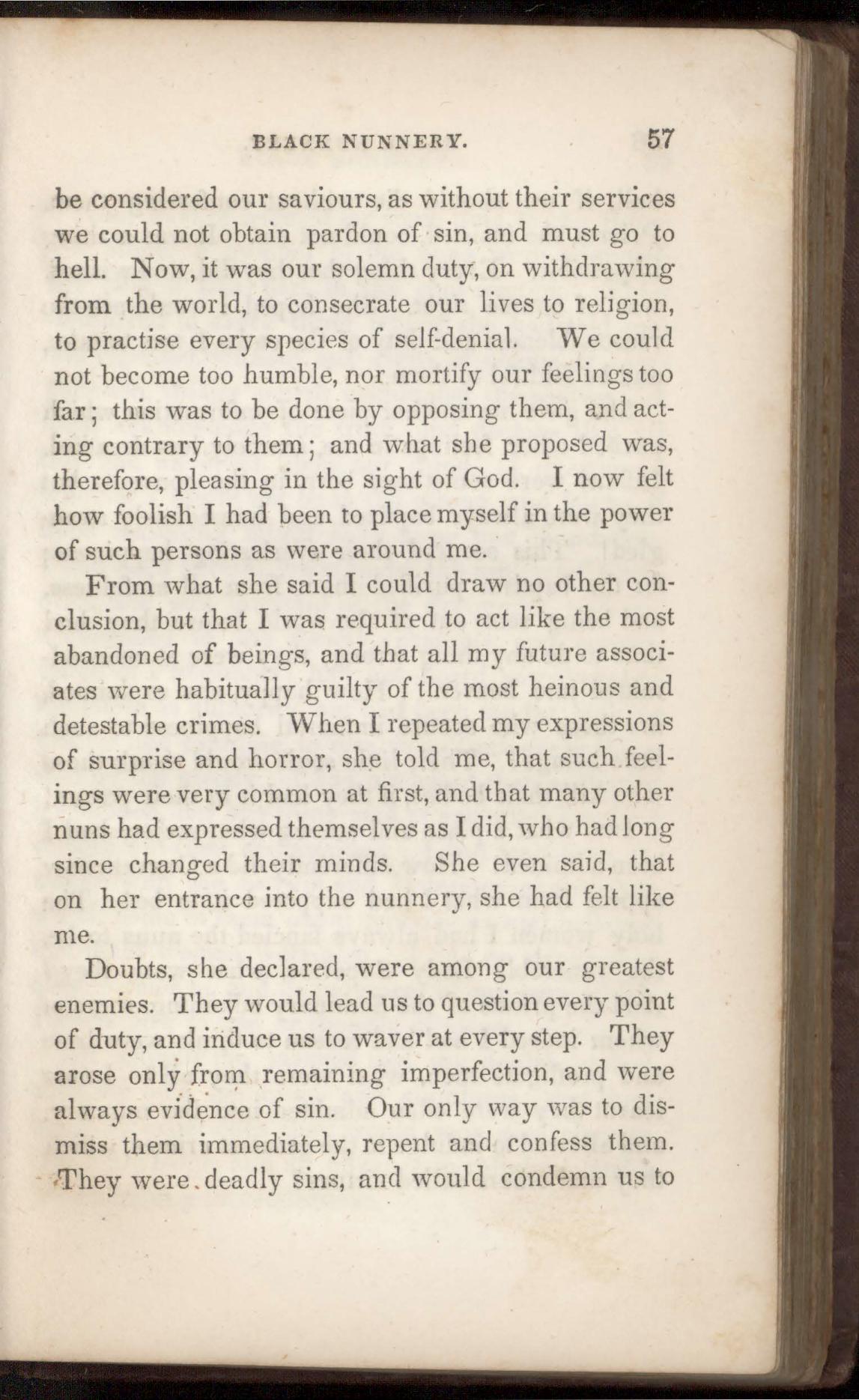

be considered our saviours, as without their services we could not obtain pardon of sin, and must go to hell.✝ Now, it was our solemn duty, on withdrawing from the world, to consecrate our lives to religion, to practise every species of self-denial. We could not become too humble, nor mortify our feelings too far; this was to be done by opposing them, and acting contrary to them; and what she proposed was, therefore, pleasing in the sight of God. I now felt how foolish I had been to place myself in the power of such persons as were around me.
From what she said I could draw no other conclusion, but that I was required to act like the most abandoned of beings, and that all my future associates were habitually guilty of the most heinous and detestable crimes. When I repeated my expressions of surprise and horror, she told me, that such feelings were very common at first, and that many other nuns had expressed themselves as I did, who had long since changed their minds. She even said, that on her entrance into the nunnery, she had felt like me.
Doubts, she declared, were among our greatest enemies. They would lead us to question every point of duty, and induce us to waver at every step. They arose only from remaining imperfection, and were always evidence of sin. Our only way was to dismiss them immediately, repent and confess them. They were deadly sins, and would condemn us to
